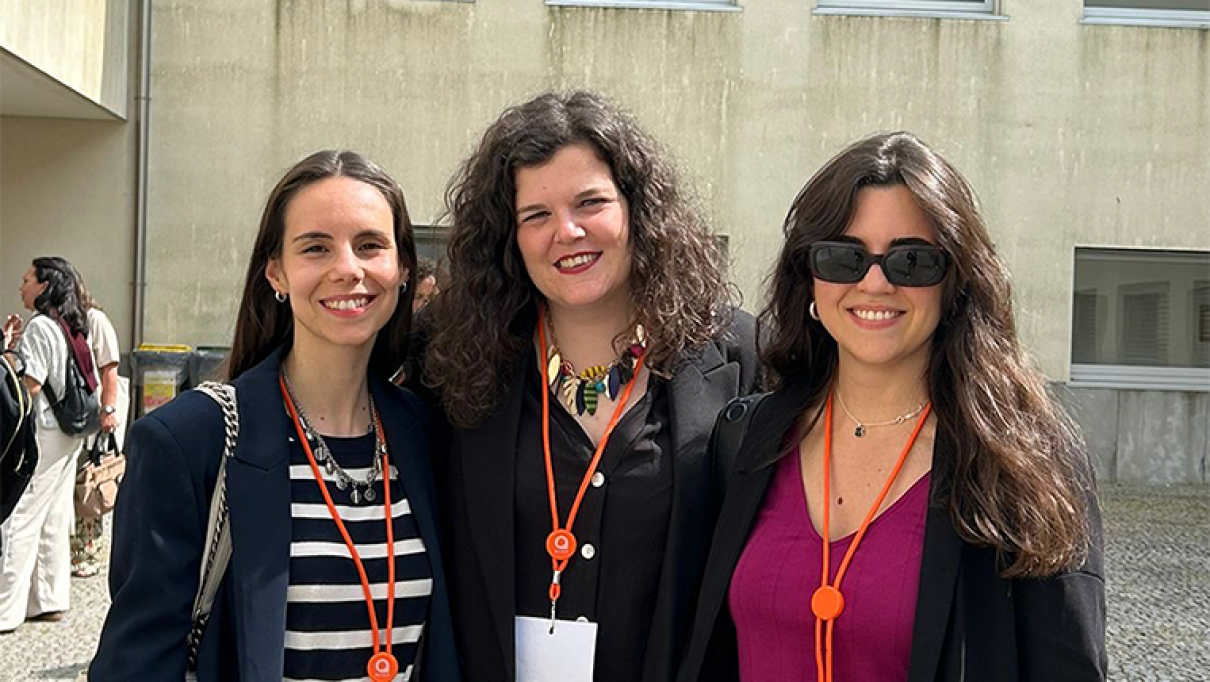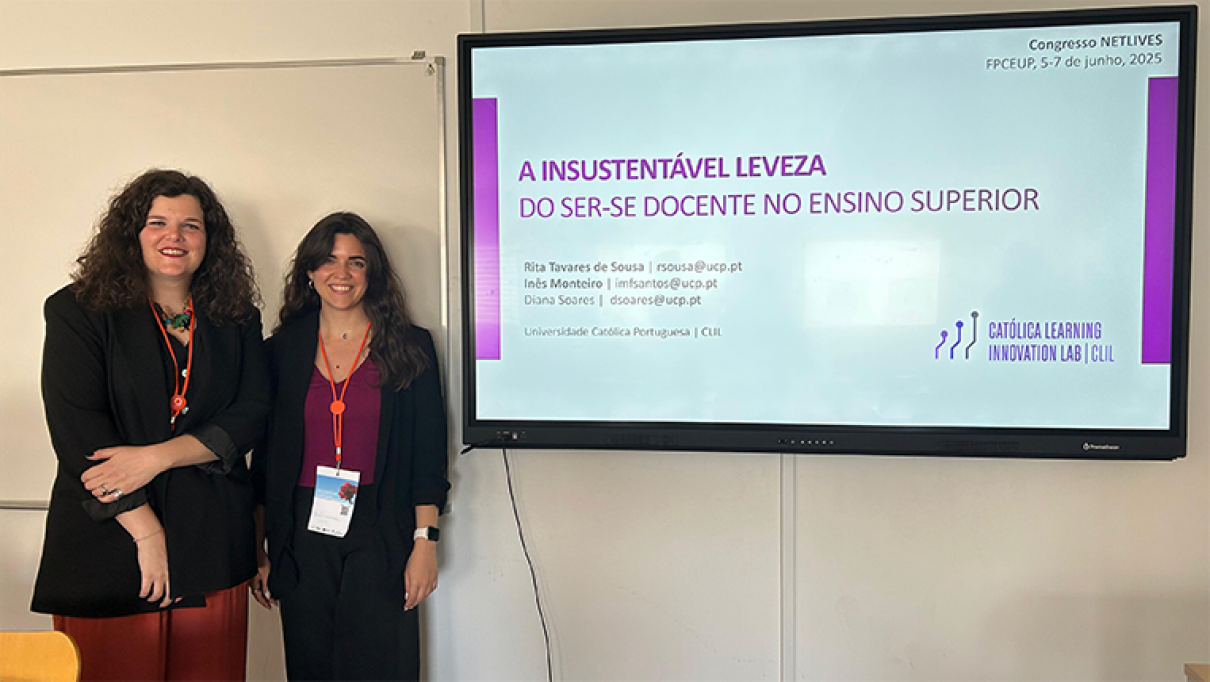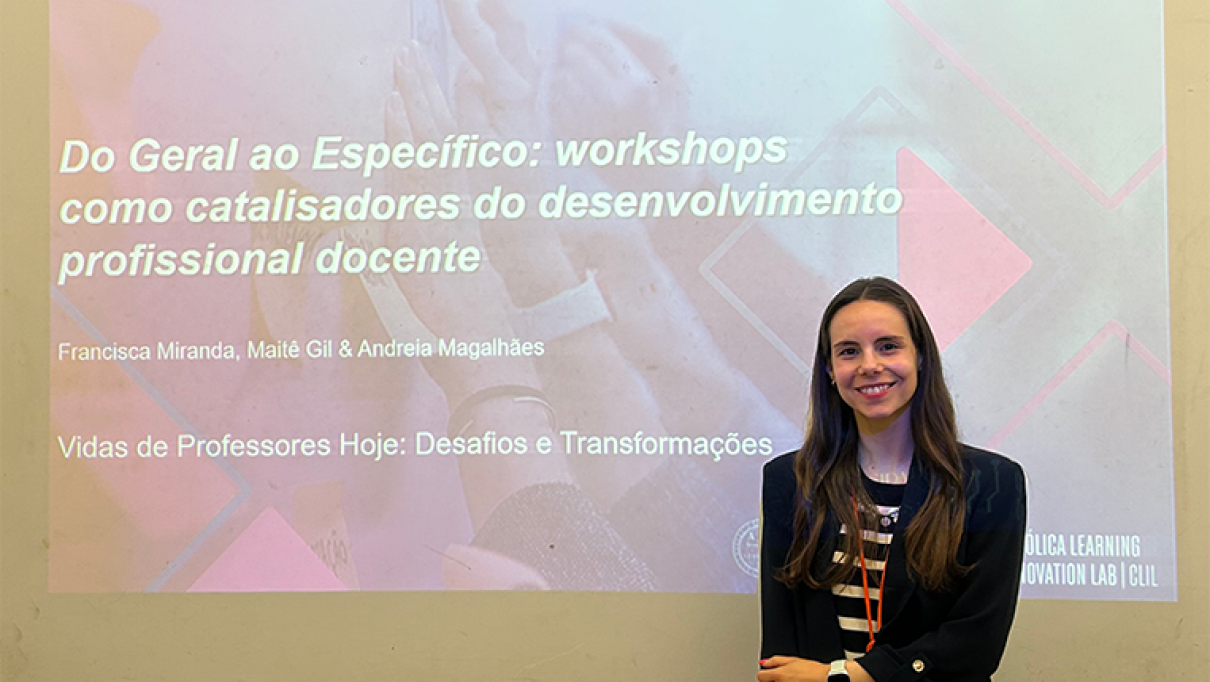Researchers from the Católica Learning Innovation Lab (CLIL) at the Universidade Católica Portuguesa (UCP) took part in the congress “Teachers’ Lives Today: Challenges and Transformations (NeTLives – New Teachers Lives)”, held from 5 to 7 June 2025 at the Faculty of Psychology and Education Sciences of the University of Porto. The event brought together national and international teachers, researchers and experts to reflect on the multiple factors of change that have impacted the teaching profession, as well as the challenges faced in a constantly evolving educational context.
With presentations focused on teachers’ professional development and the complexity of academic careers, the CLIL representatives shared experiences and results from innovative initiatives developed in higher education.
In the presentation titled “From General to Specific: Workshops as Catalysts for Teachers’ Professional Development”, researcher Francisca Miranda discussed the role of workshops as strategic tools for continuous teacher training. Her talk focused on two initiatives developed by the Pedagogical Innovation Lab — the Pedagogical Workshop Series and the Itinerant Workshops — which have encouraged the involvement of teachers in training activities tailored to the specific needs of different scientific fields, promoting more reflective and collaborative teaching practices.
“Participating in this congress was an enriching experience. It provided a moment for sharing practices and knowledge about teacher development initiatives, while also prompting important reflections on the social impact of education and the urgency of democratising schools, making them a fundamental right and a truly inclusive space for all,” said Francisca Miranda.
Meanwhile, researchers Rita Tavares de Sousa and Inês Monteiro presented “The Unbearable Lightness of Being a Higher Education Teacher”, in which they explored the challenges faced by university teachers due to the multiplicity of roles they take on — teaching, research, academic management and community engagement. Drawing on a focus group with higher education lecturers, they identified the main tensions experienced and the strategies used to balance these demands, highlighting the impact of workload on professional identity, particularly among those in leadership roles.
“Participating in this congress proved essential for reflecting on the next steps of this study, which is still in an exploratory phase. The way teachers identified (or not) with the presented data brought valuable insights for deepening the research. The importance of scientific dissemination and networked collaboration became clear as catalysts for more rigorous and meaningful scientific production,” noted Inês Monteiro.
The NeTLives congress proved to be a space for dialogue, sharing and critical reflection on contemporary teaching, reinforcing the importance of innovation, continuous training, and the recognition of the teaching profession.
More information about the event can be found on the official website
Laboratório de Inovação Pedagógica | CLIL





